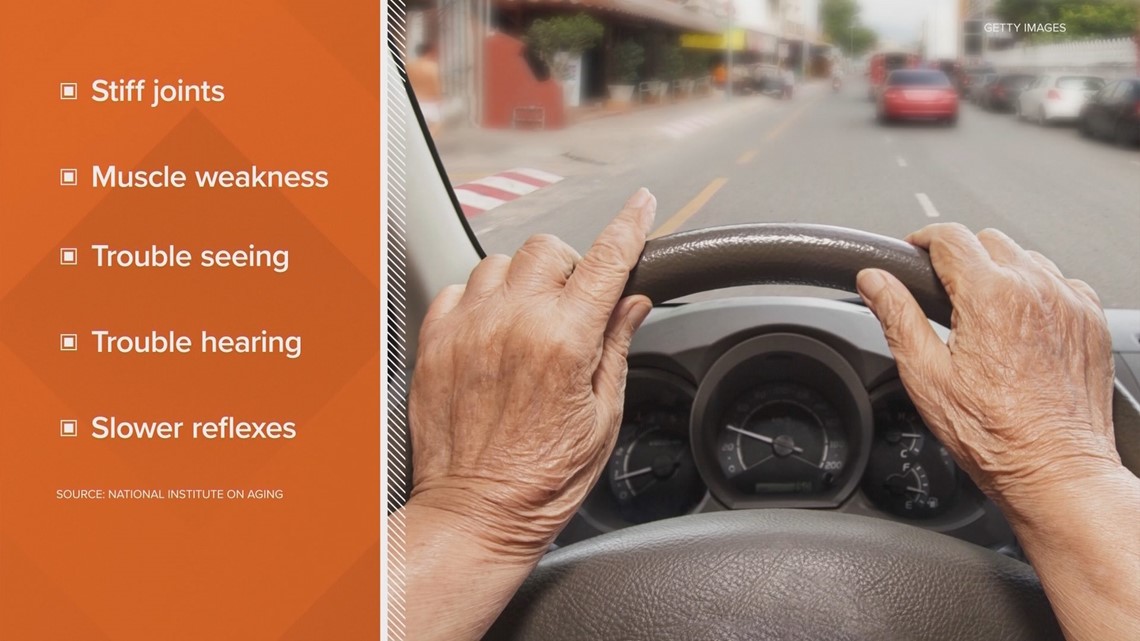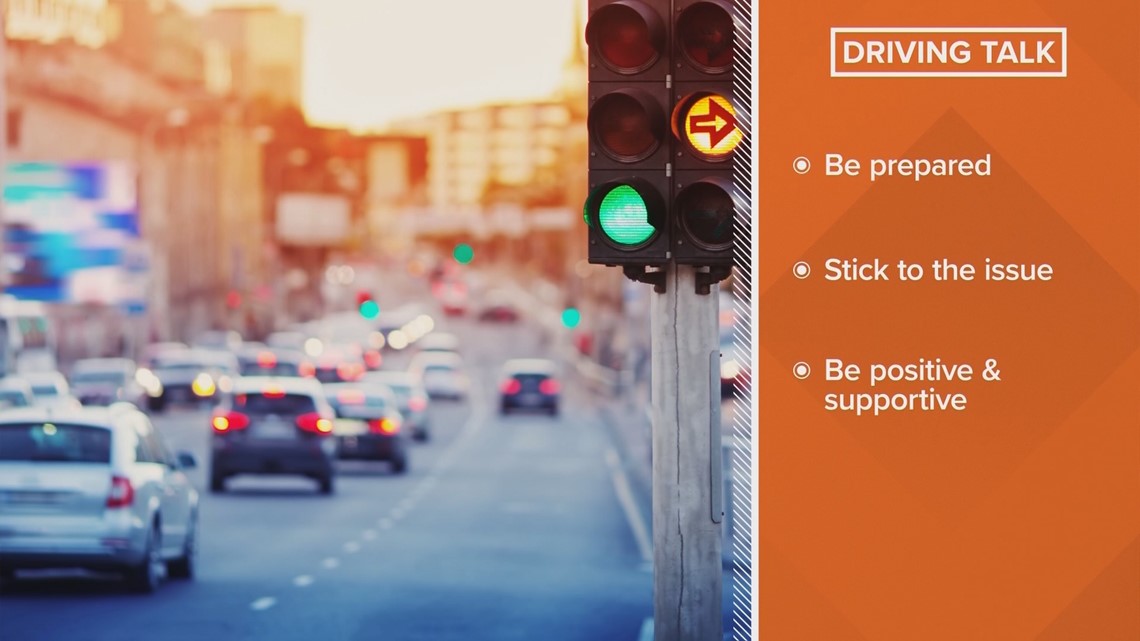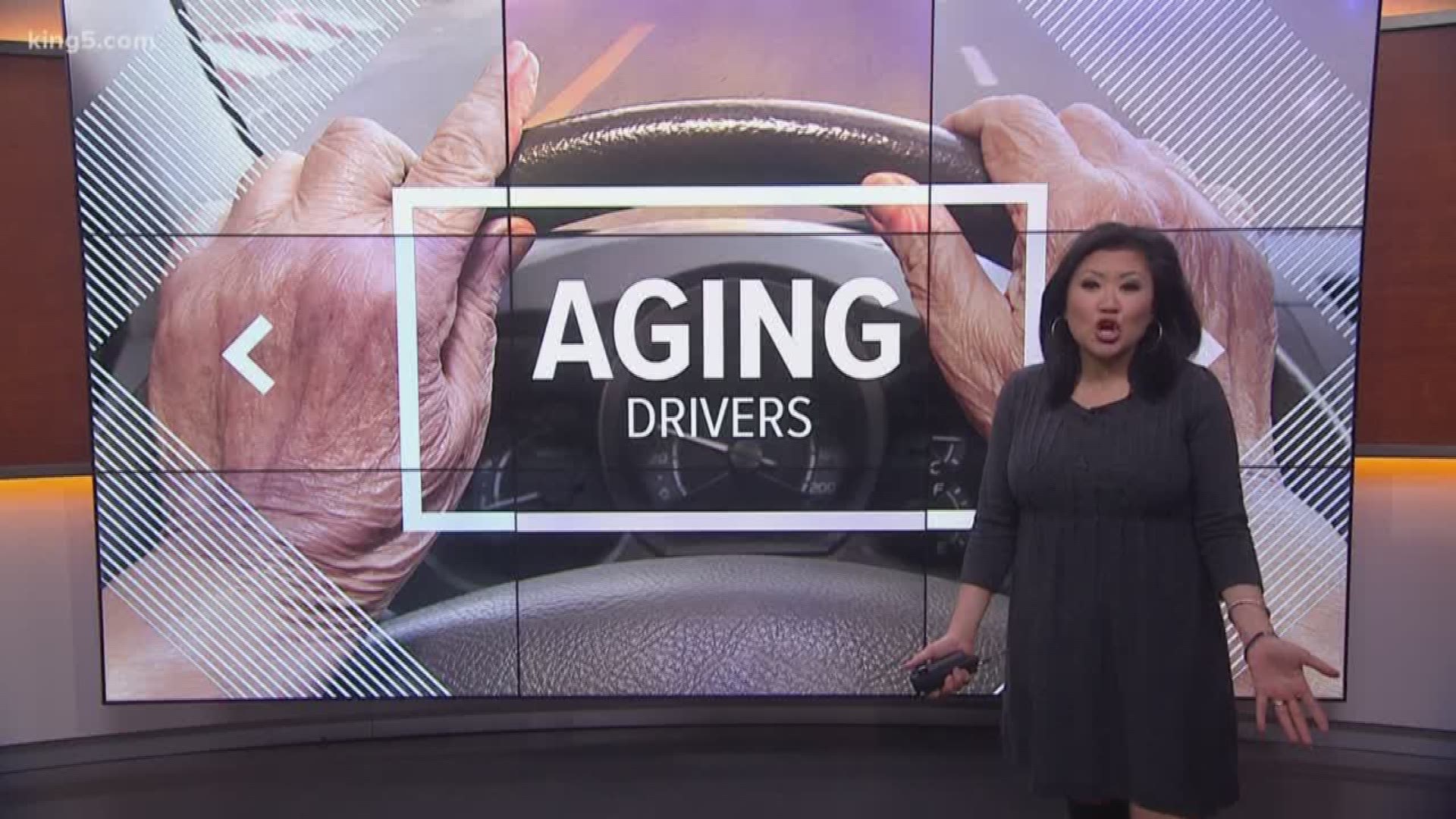We all age differently. Because of that, there's no way to set an age on when everyone should put down their keys and stop driving.
"What we are finding with older adults is that there are a number of things that occur with the aging process that put them at greater risk when driving," Dr. Marie Bernard, deputy director of the National Institute on Aging, said.
Dr. Bernard said that as you age, your joints may get stiff and your muscles could weaken.
"Older adults may have problems with arthritis say in the neck making it hard to turn and see dangers," Dr. Bernard said.
Some older adults might also start to have trouble seeing or hearing while they are on the road. Dr. Bernard said your reflexes can also get slower.
"A normal part of aging is the speed that which we process the information around us seems to slow down," she said. "We aren’t necessarily as efficient or fast with that, and that can be a challenge in a really busy travel setting."


Dr. Bernard said that once you start noticing these signs, it may be time to consider having "the talk" about driving.
“It can be a really emotional discussion, because driving is part of one being independent in our country,” she said.
The National Institute on Aging said you should be prepared before talking with an older person about his or her driving. You should also stick to the issue. Discuss the driver's skills, not their age.
“We are going into the holiday season. It’s a great opportunity, a great time to begin that conversation," Dr. Bernard said. "It should be done in a supportive fashion. Not talking about, ‘you’re too old to drive,’ but talking about skills and offering to help that older adult."


There are a number of resources available for older drivers:

